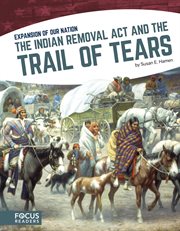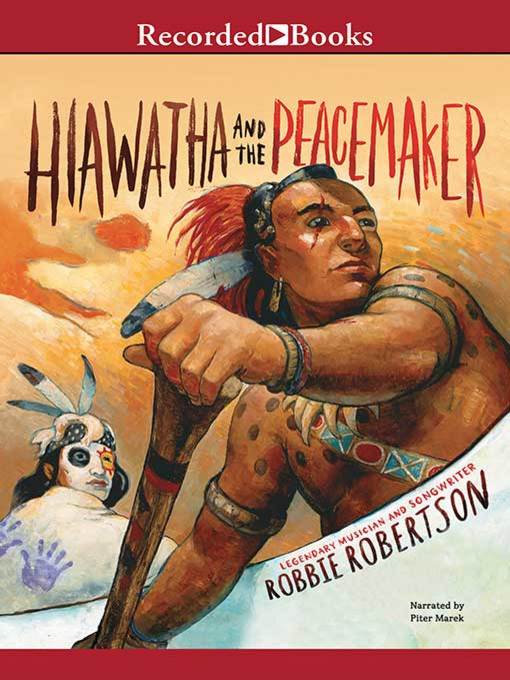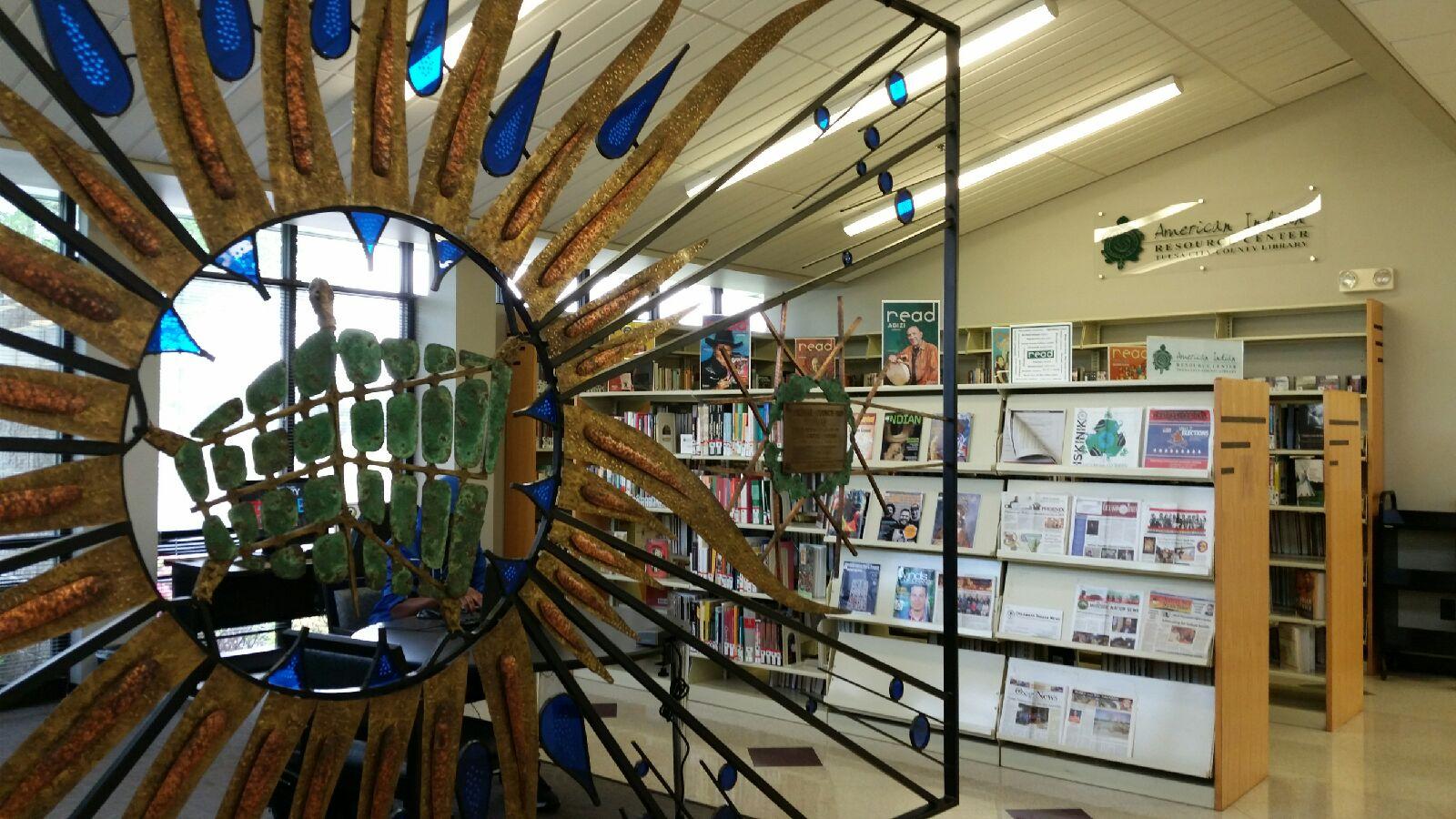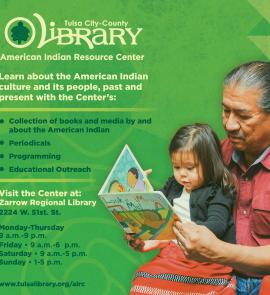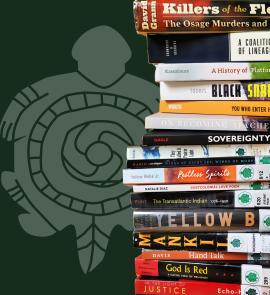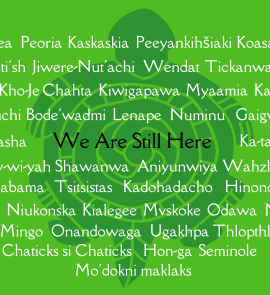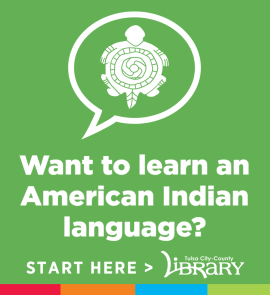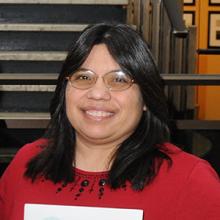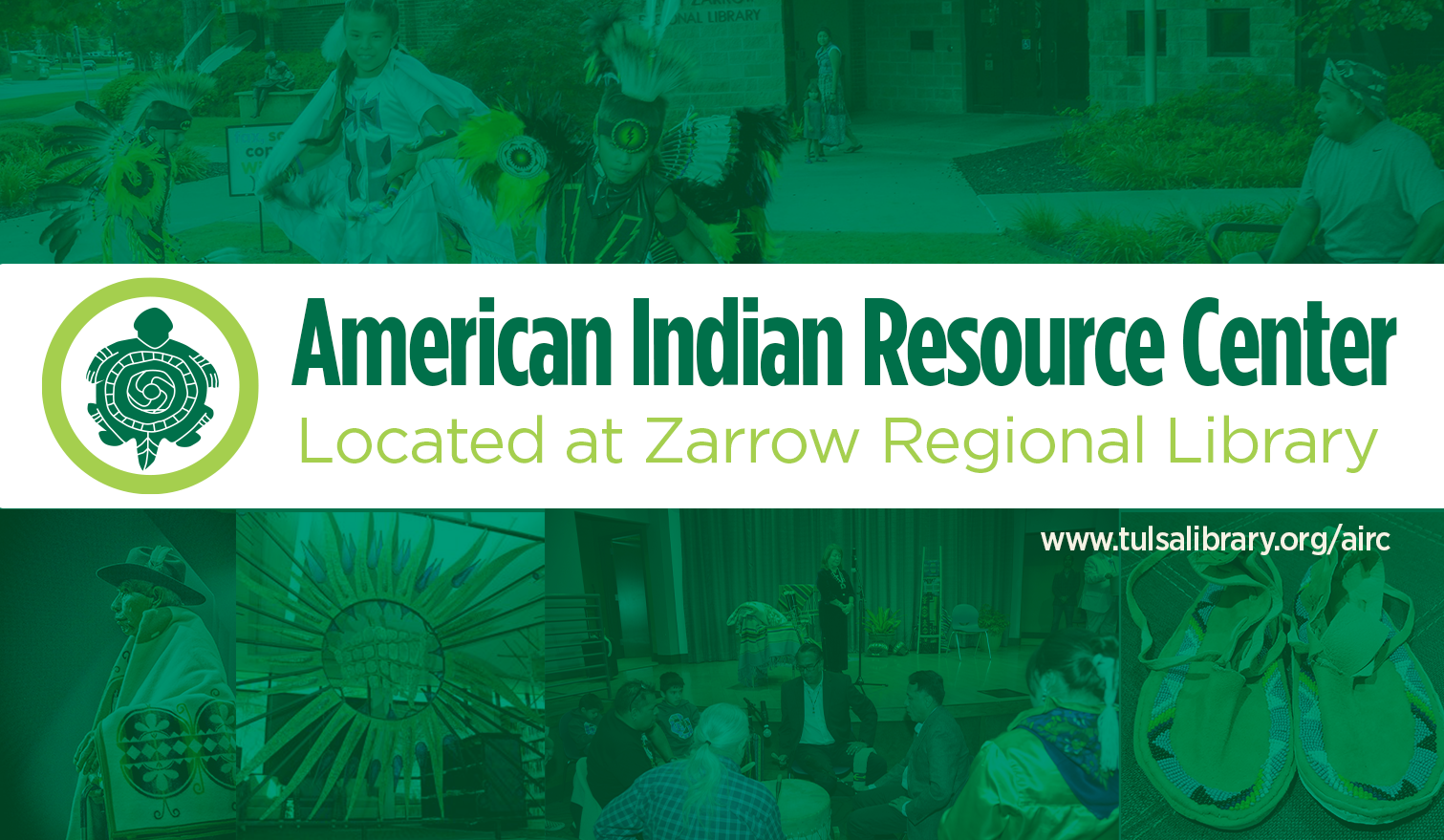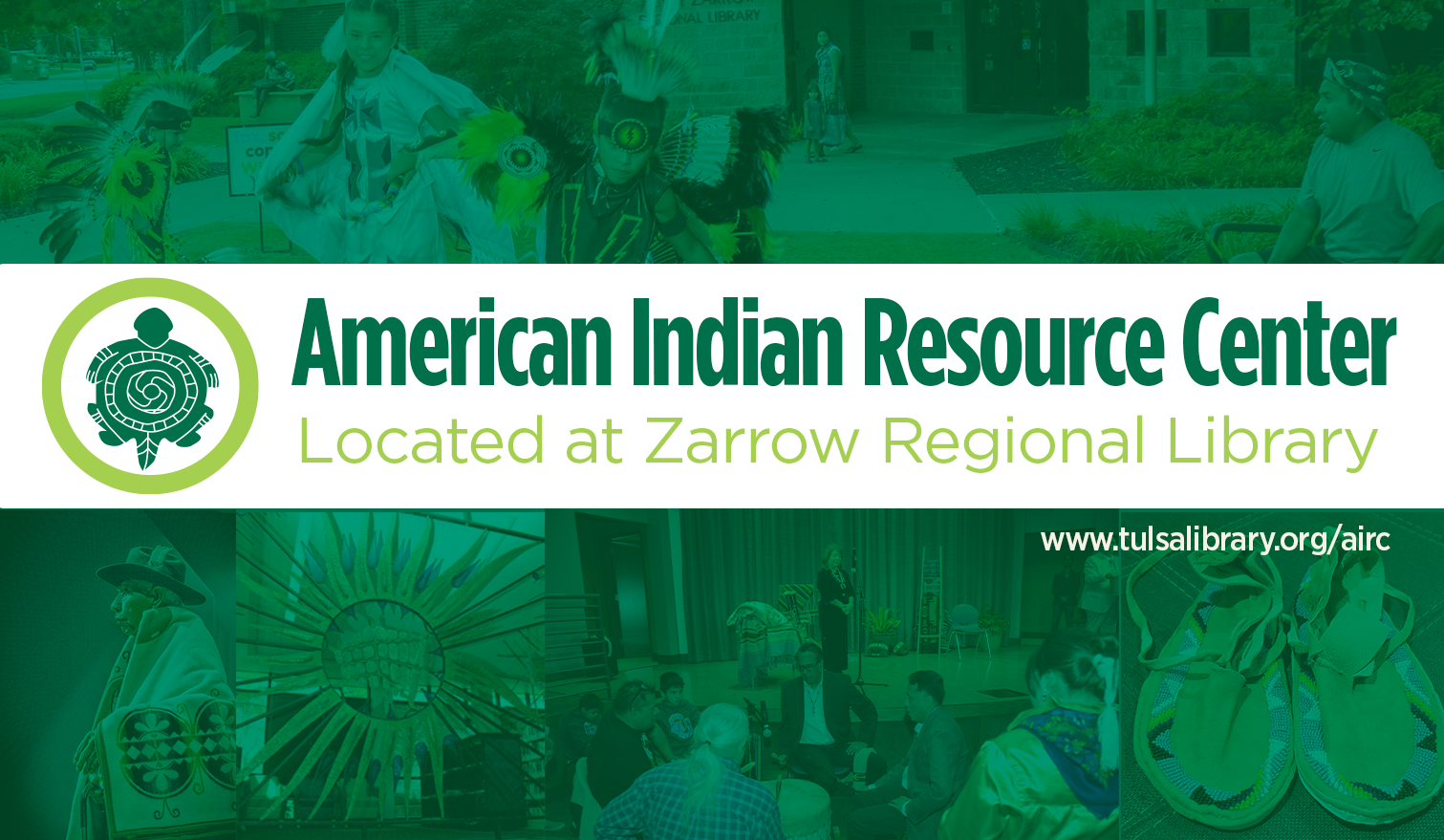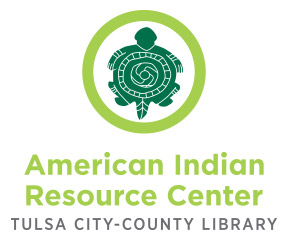
The American Indian Resource Center (AIRC) was established in 2000 to provide cultural, informational, and educational resources and programming highlighting the American Indian culture.
Please visit the Genealogy Resource Center to trace your American Indian ancestry.
Overview
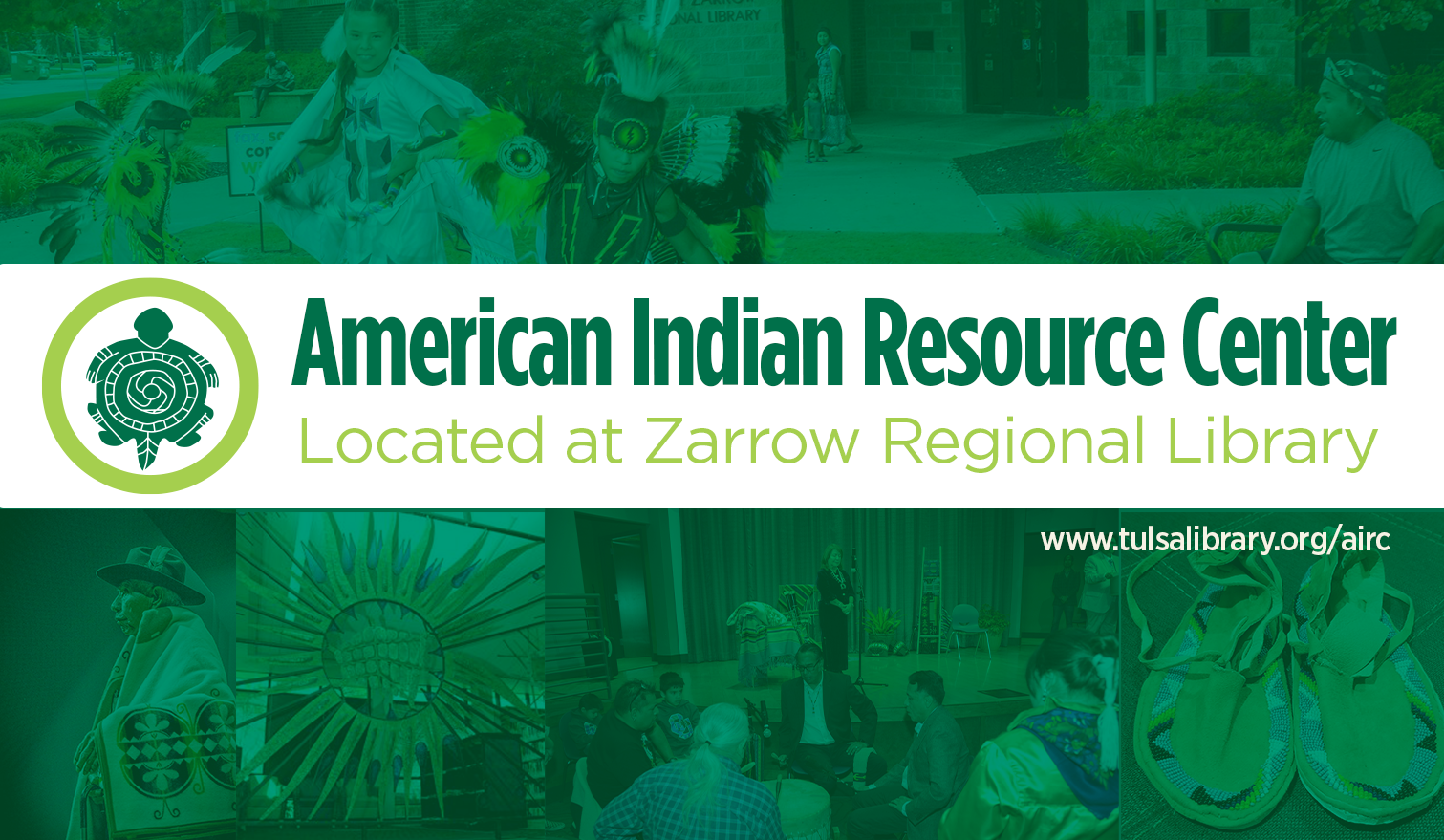
TCCL's American Indian Resource Center (AIRC) has provided 20 plus years of service to the greater Tulsa community and beyond through cultural, educational, and informational services and activities that highlight the American Indian.
Nestled in the northern corner of the Muscogee Nation, the American Indian Resource Center (AIRC) at the Zarrow Regional Library in west Tulsa sits on land that once belonged to original Mvskoke land allottee, Sammie Naharkey. As one of the only two centers of its kind in the nation, the AIRC was born in 2003 from what had been TCCL's American Indian Collection. The expansion of the collection into the AIRC brought with it display areas and programming space to highlight the center's collections and programs, such as the Festival of Words Writer Award program. In 2012, the AIRC moved to its current home at Zarrow Regional Library, where the community has access to more than 4,000 collection items by and about American Indians, including historical and rare materials, new releases, films, and music.
In addition to its special collection, the AIRC offers cultural and educational programming such as language classes, cultural make and take programs, and events highlighting contributions from American Indians nationwide. The American Indian Circle of Honor Award recognizes American Indians who have dedicated their lives to the betterment of Indian Country, while the American Indian Writers Award brings nationally known American Indian authors to Tulsa. The Festival of Words is a series of monthlong programming throughout Tulsa County celebrating the American Indian.
Contact Information
Visit the American Indian Resource Center
Address:
Zarrow Regional Library
2224 W. 51st St.
Tulsa, OK 74107
Driving Directions
Hours:
Monday: 9:00 am to 9:00 pm
Tuesday: 9:00 am to 9:00 pm
Wednesday: 9:00 am to 9:00 pm
Thursday: 9:00 am to 9:00 pm
Friday: 9:00 am to 6:00 pm
Saturday: 9:00 am to 5:00 pm
Sunday: 1:00 pm to 5:00 pm
Contact:
Phone: (918) 549-7472
Email: teresa.runnels@tulsalibrary.org
AIRC E-Newsletter
In an effort to inform the public about services, programs and resources available through the AIRC, an e-newsletter is released each month. Please feel free to forward the newsletters to others who might be interested or benefit from the information.
Subscribe to E-Newsletter
Turtle Logo
- The logo design representing the AIRC is a turtle logo surrounded by a circle. The turtle is a stylized representation of an engraved shell figurine pendant found at the Spiro Mounds archaeological site in Spiro, Oklahoma.
- Surrounding the turtle is a circle, a symbol common to American Indian cultures. The circle suggests continuity, wholeness, and interconnectedness.
"Place of the Turtles" Screen
The history of the turtle screen.
American Indian Festival of Words
This free festival celebrates the history, culture, arts and achievements of American Indians through a series of enlightening family programs at your local libraries.
American Indian Circle of Honor
The Circle of Honor Award Presentation honors an American Indian for their lifetime achievements and contributions that have enriched the lives of others.
American Indian Writers Award
The American Indian Festival of Words Writers Award recognizes written contributions of outstanding American Indian authors, poets, journalists, film and stage scriptwriters.
Go to American Indian Writers Award
Native American Heritage Month
The American Indian Resource Center and other branch libraries at Tulsa City-County Library participates in Native American Heritage Month each November.
Summer Reading Program
The American Indian Resource Center participates in TCCL's Summer Reading Program in all age groups.
Go to Summer Reading Program
American Indian Experience
American Indian Experience
Full-text resource exploring the histories and contemporary cultures of the indigenous peoples of the United States.
Bibliography of Indigenous Peoples in North America
Bibliography of Indigenous Peoples in North America
Bibliography of Indigenous Peoples in North America covers all aspects of culture, history, and life. Contains more than 190,000 citations for books, essays, journal articles, and government documents of the United States and Canada. Dates of coverage range from the 16th century to the present.
Indigenous Peoples of North America Archive, Part 2: Indian Rights Association
Indigenous Peoples of North America Archive, Part 2: Indian Rights Association
Enabling exploration of the political, social, and cultural history of native peoples from the sixteenth century well into the twentieth century, Indigenous Peoples of North America illustrates the fabric of the North American story with unprecedented depth and breadth. Comprehensive yet personal, the collection covers the history of American Indian tribes and supporting organizations.
Part 2: The Indian Rights Association, 1882 - 1986 provides a record of the efforts of the first organization to address Native American interests and rights. This collection includes incoming and outgoing correspondence; organizational records; printed material (including early pamphlets and publications both by the Indian Rights Association and other American Indian and Indian-related organizations); Indian Rights Association annual reports; draft legislation; administrative files, the papers of Indian Rights Association founder Herbert Welsh, photographs (often from Western field trips), materials from the Council on Indian Affairs, and manuscripts and research notes regarding social and cultural Indian traditions.
This collection is made possible through TCCL thanks to a generous donation by Verified News Network (VNN) Oklahoma, a Native-owned newsroom headquartered on the Muscogee (Creek) Nation reservation. VNN Oklahoma is dedicated to amplifying the voices of underrepresented and economically disadvantaged people with the overarching goal of fostering a more inclusive and informed society.
Mango Languages
Mango Languages
Choose from dozens of languages and learn by listening to native speakers and engaging in the interactive lessons offered through this user-friendly language instruction tool. Choose from more than 70 languages, including Cherokee and Potawatomi.

